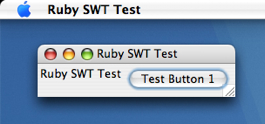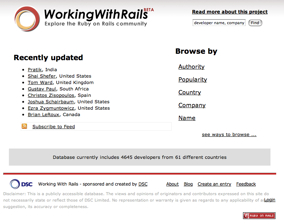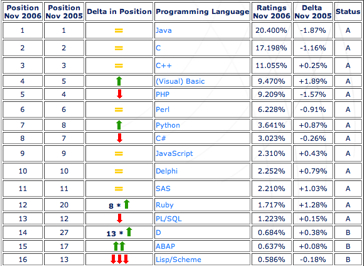By Peter Cooper / November 9, 2006

(Disclaimer: I’m no Java wiz, so if I get anything wrong about Java or its libraries, post comments!)
The SWT (Standard Widget Toolkit) is a GUI widget toolkit for the Java platform. Unlike AWT and Swing, it uses the local operating system’s own controls. This means you can develop Java apps that ‘look native’ on multiple platforms. The popular Eclipse IDE uses SWT to work and looks graphically native on multiple platforms (as does Azureus). SWT is also, reputedly, faster than the other alternatives. Sounds great for developers, right? Java developers.. sure.
I decided SWT was too good an idea to not investigate, so I downloaded JRuby 0.9.1 (a Ruby interpreter written in Java and which provides access to Java classes from Ruby) and set to work. Read More











